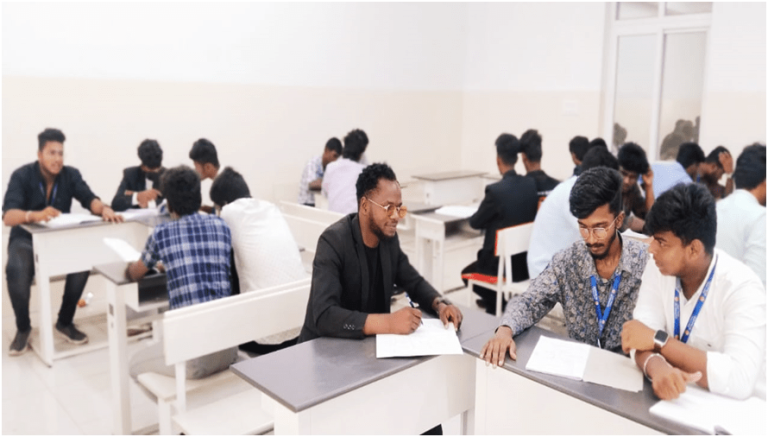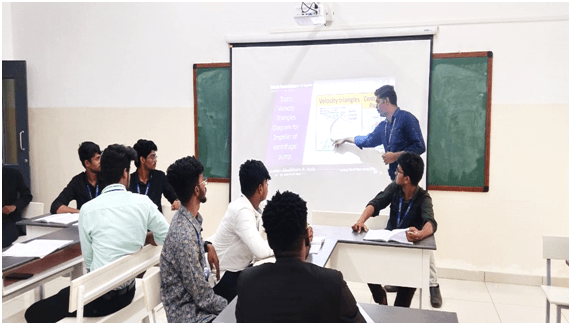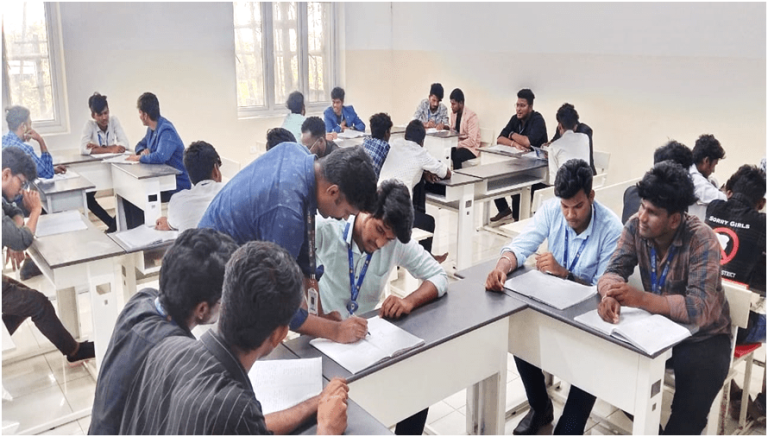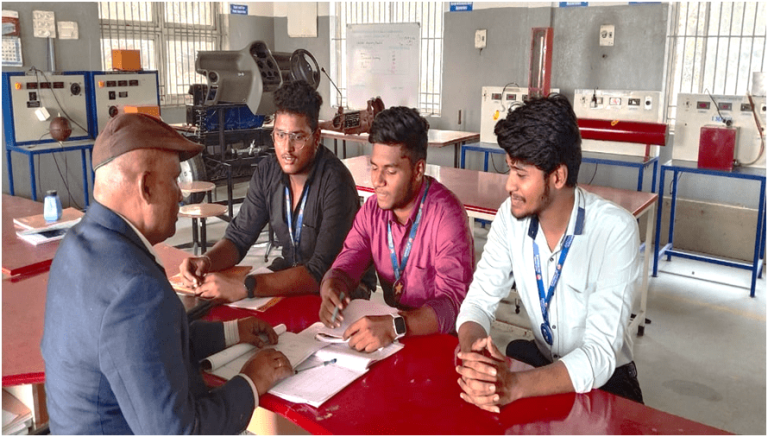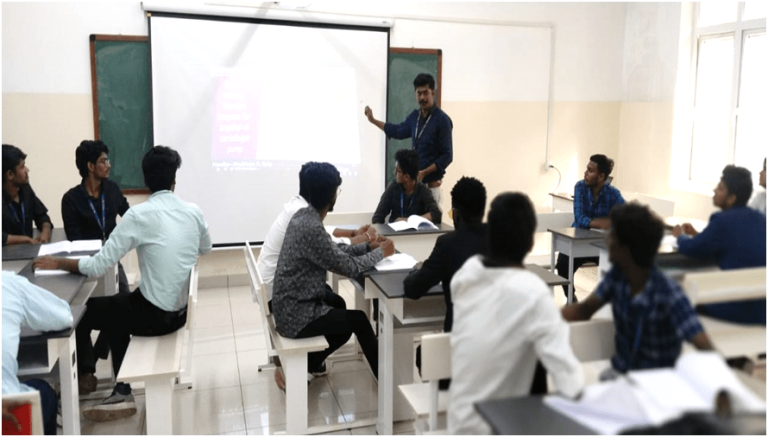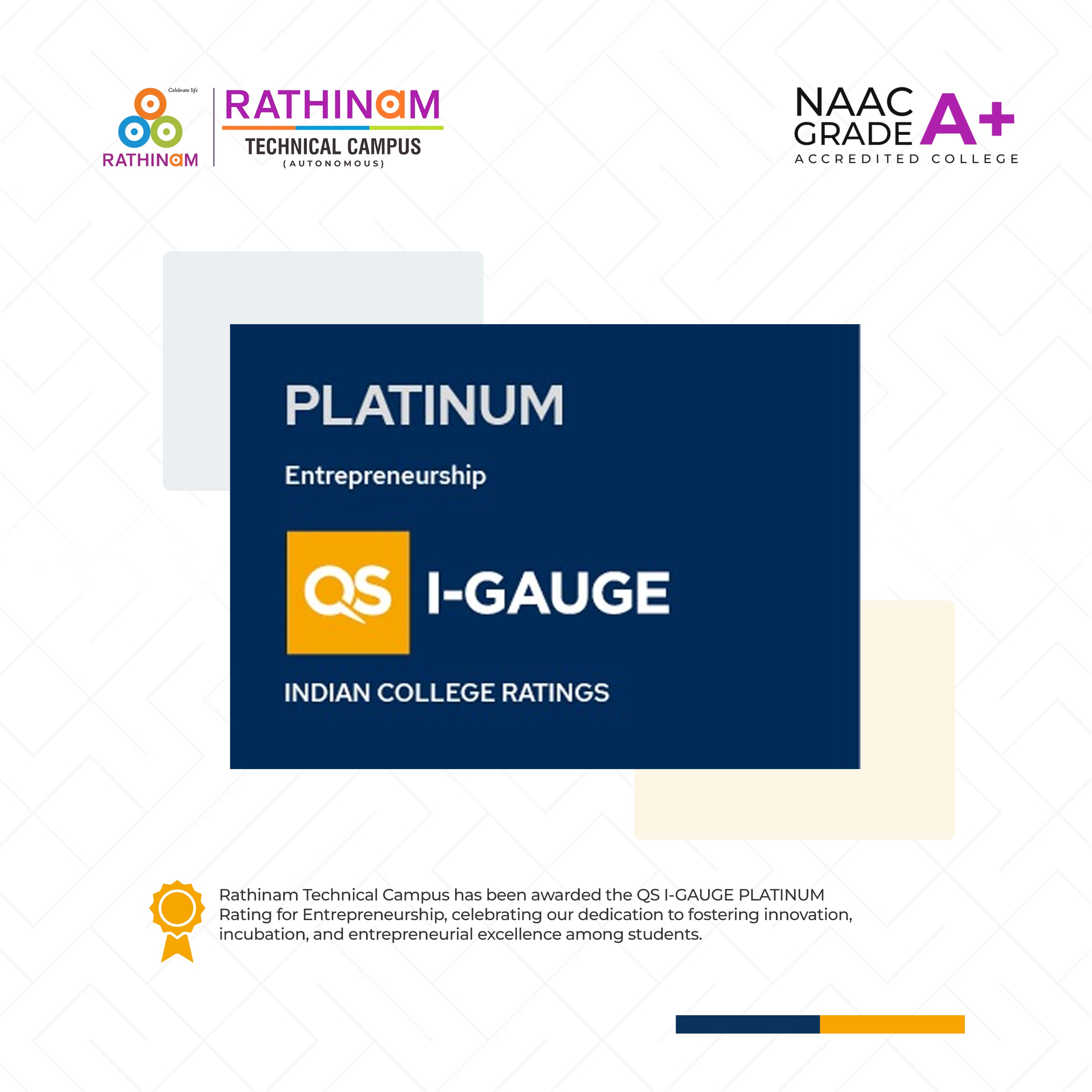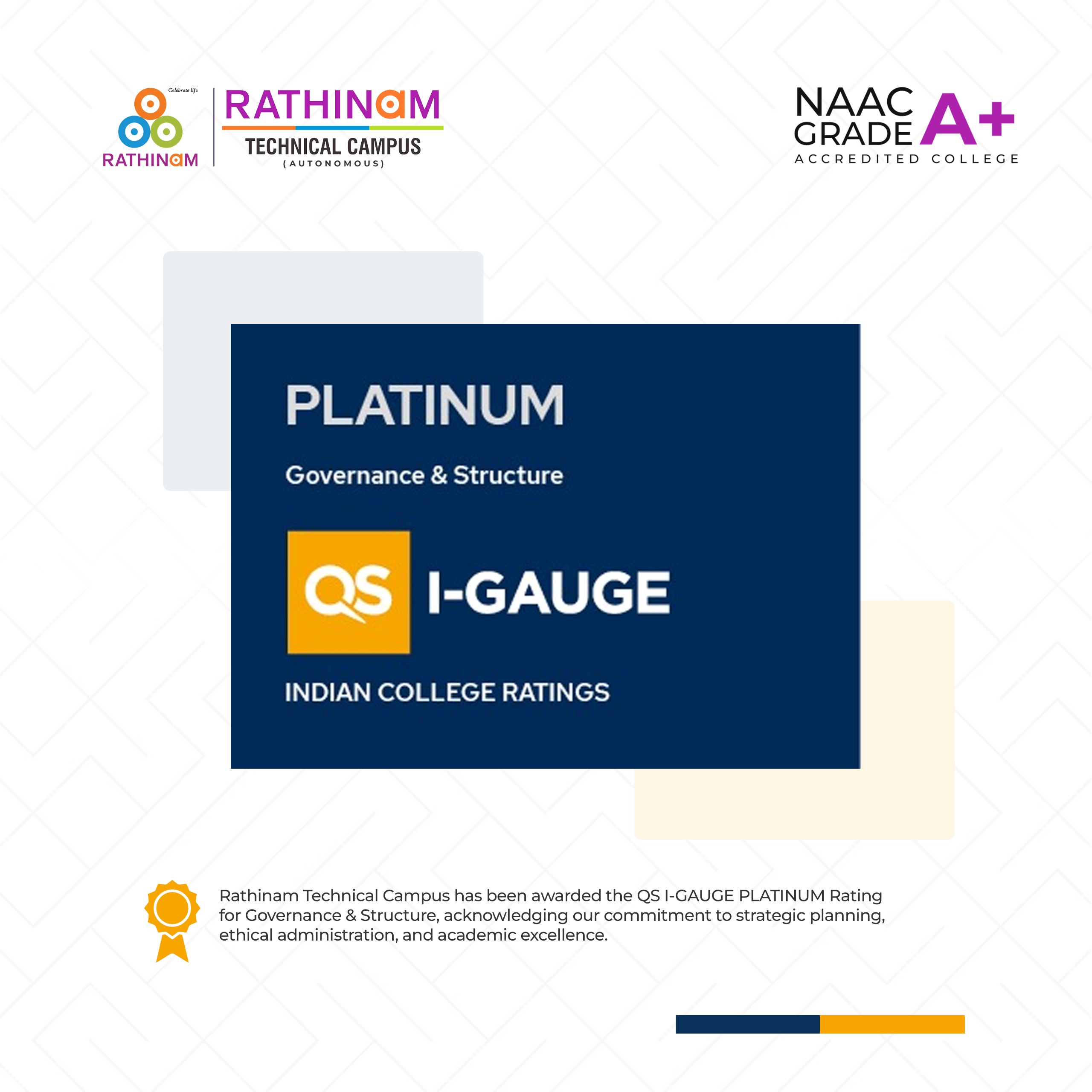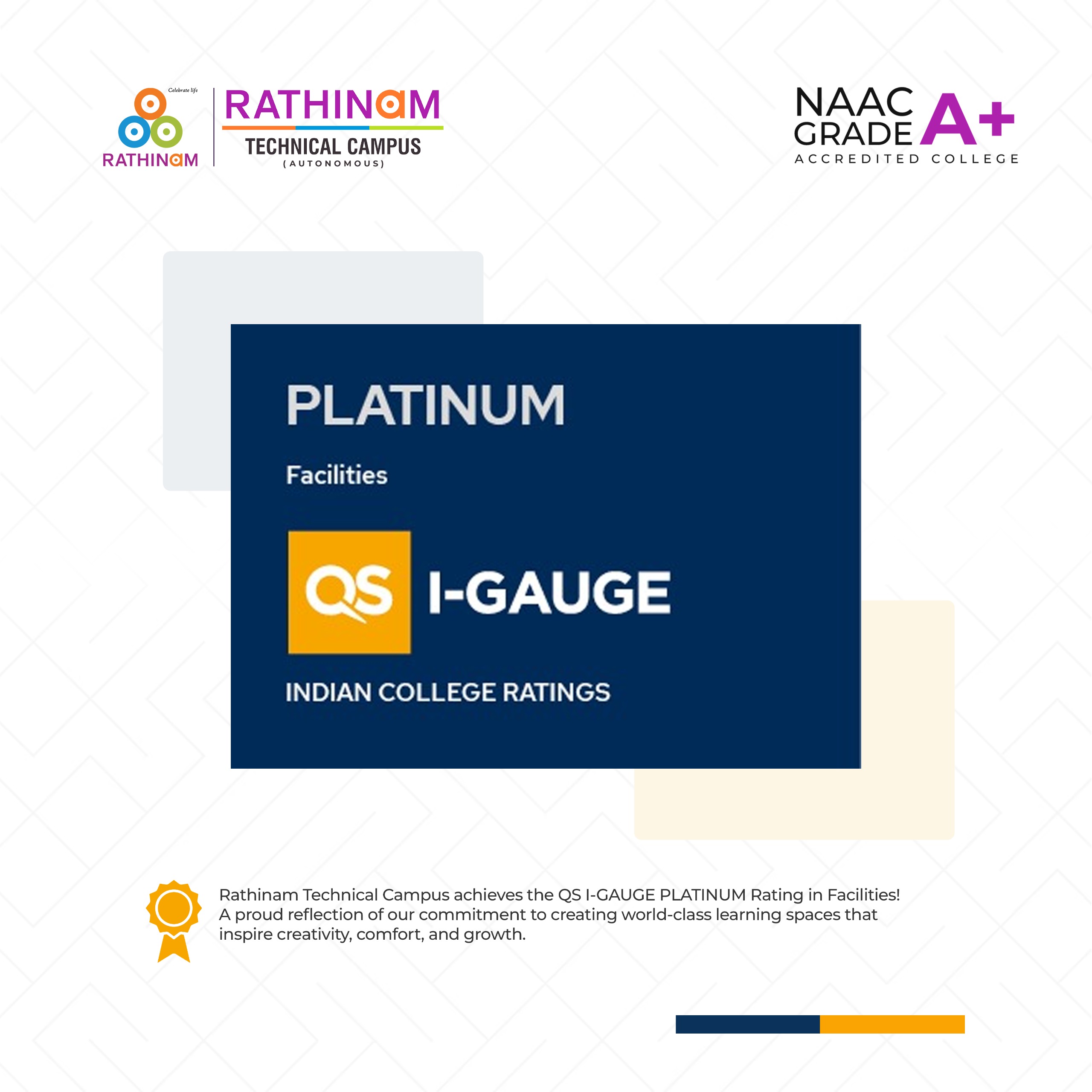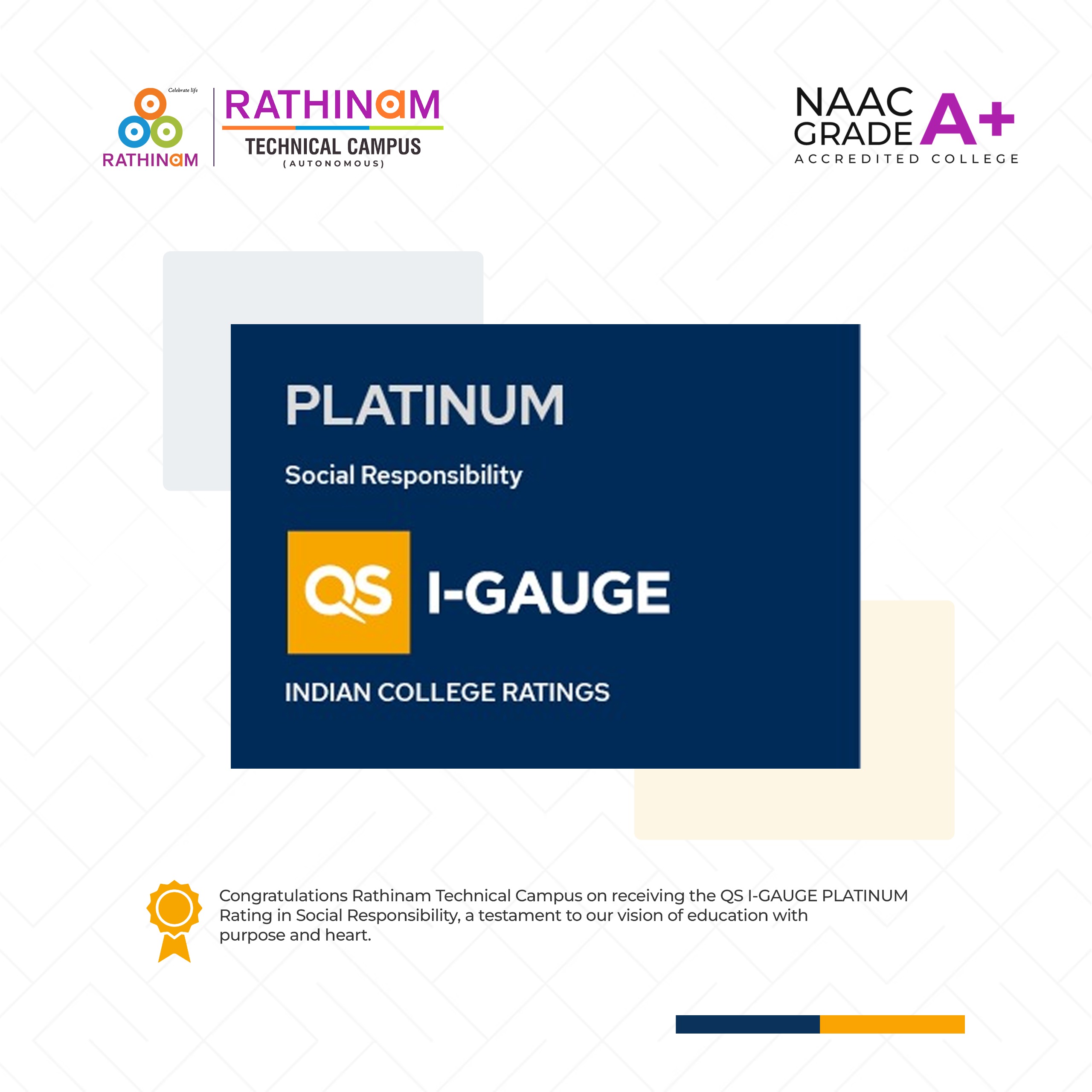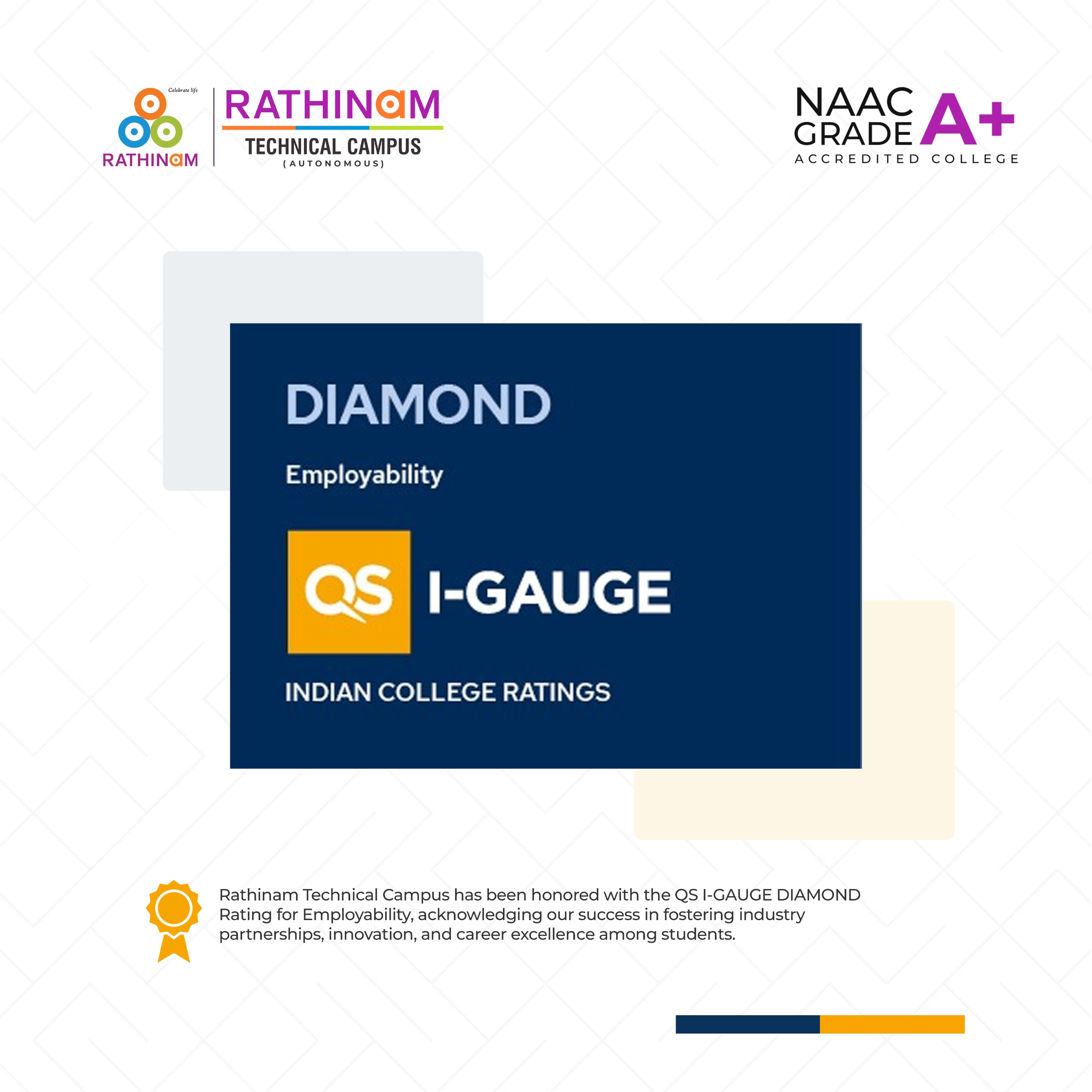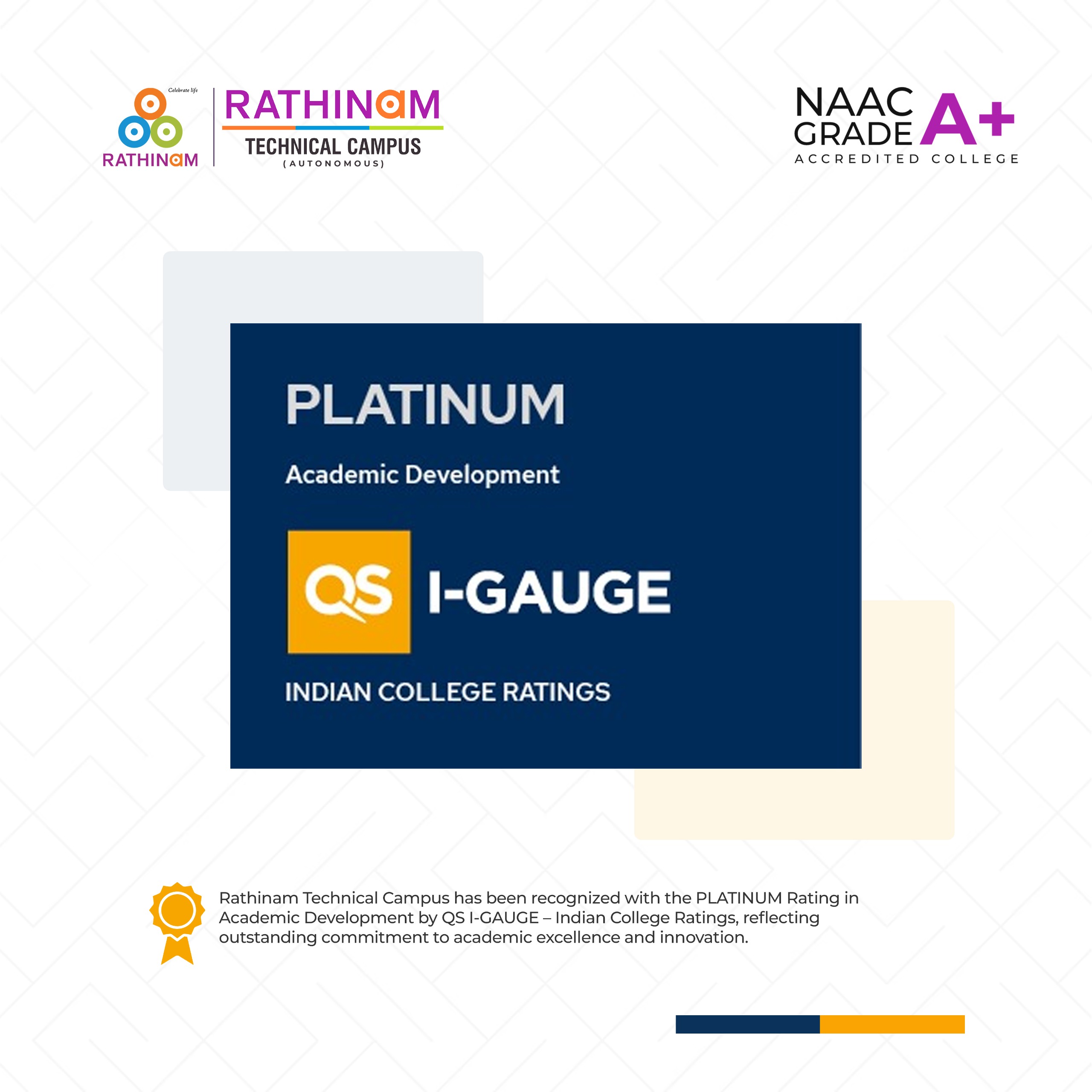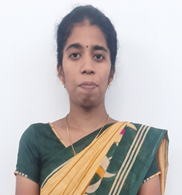Teaching methodology
Teaching Methodology
Process
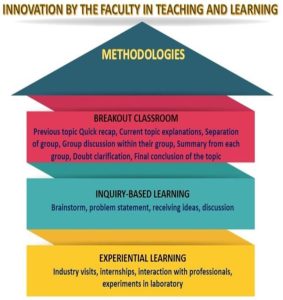
Innovations by the faculty in teaching & learning
Mode of teaching in our institute is not only limited to the traditional Chalk & Talk methods, but also an amalgamation of the modern technology like power point presentation, smart board, visual aids,with the latest and advanced equipment’s to facilitate faculty members for practical demonstrations, and effective delivery of Subject lectures. Resources are available in the digital library and it facilitates the faculty members and students to utilize e-Tutorials of NPTEL, various MOOCs, access E-Journals, Camu Learning Hub, etc.
Faculty members’ use breakout room, inquiry-based learning, experiential learning and flipped classroom to make teaching learning process innovative and more effective.
BREAKOUT CLASSROOM
Breakout Room is a concept-based teaching to make the students vibrant during the online and offline classes. The faculty member gives a quick recap of the topics discussed in the previous class. Then the faculty lectures on the current topic. After that, all students are split as into groups. 4 or 5 students in each group. All groups are left to discuss the current topic explained by the faculty. After the discussion, one member from team summaries the discussion and the faculty asks the question to all individuals in each group. After asking the summary of all the students, the faculty will conclude the topic.
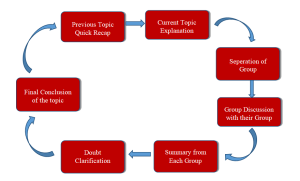
 Current topic explanation by faculty.
Current topic explanation by faculty. Student of each group having their discussion.
Student of each group having their discussion. Doubt Clarification.
Doubt Clarification. Final conclusion of the topic.
Final conclusion of the topic.
INQUIRY-BASED LEARNING
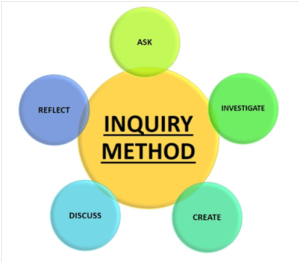
The inquiry method is adopted to instill curiosity among individuals about the topic being taught. This method prompts a student to question the truth and accuracy of the information obtained. This method requires the students to make sense of what they have learned. According to Beyer B.K, Inquiry is one way of making out of what we experience. It requires thinking, it requires learners to make their meaning out of what they experience.
E-RESOURCES AVAILABLE (CENTRALIZED / DEPARTMENT LEVEL)
 Faculty members utilize the digital library, Open-Source software and tools to comprehend the course content.
Faculty members utilize the digital library, Open-Source software and tools to comprehend the course content. Students are cheered to give seminars and assignments on various innovative topics to broaden their knowledge.
Students are cheered to give seminars and assignments on various innovative topics to broaden their knowledge. Faculty member share notes and additional knowledge contents through my camu platform to the students for their betterment.
Faculty member share notes and additional knowledge contents through my camu platform to the students for their betterment. Faculty members encourage the students to select projects that are innovative and research oriented.
Faculty members encourage the students to select projects that are innovative and research oriented.- Apart from the regular curriculum students are taught to get to know the latest technologies and market required skills.
 Industrial visits are organized by the faculty members exposing the students to the working of different organizations related to their subjects.
Industrial visits are organized by the faculty members exposing the students to the working of different organizations related to their subjects. The faculty members are encouraged to participate in short term courses, webinars, faculty development programs and workshops on advanced topics to keep pace with the developing and advanced knowledge and skills.
The faculty members are encouraged to participate in short term courses, webinars, faculty development programs and workshops on advanced topics to keep pace with the developing and advanced knowledge and skills. Both faculty members and students are encouraged to participate/present papers in national/international conferences and publish their articles in National/International journals to enrich their knowledge.
Both faculty members and students are encouraged to participate/present papers in national/international conferences and publish their articles in National/International journals to enrich their knowledge. The department has Mastron technical club to inspire the students to learn and sculpt them according to the industrial needs. Quizzes are conducted in the department to enhance the competitive behavior of students.
The department has Mastron technical club to inspire the students to learn and sculpt them according to the industrial needs. Quizzes are conducted in the department to enhance the competitive behavior of students.- Consistently, the department organizes Guest lectures by eminent industry personnel to learn the methods and practices adopted in industries.
Innovations by Faculty in Teaching & Learning
In our institute, the teaching methodology transcends the traditional Chalk & Talk approach, incorporating modern technology such as PowerPoint presentations, smart boards, and visual aids. Advanced equipment is used for practical demonstrations and effective delivery of subject lectures. The digital library is a rich resource for faculty members and students, providing access to e-Tutorials from NPTEL, various MOOCs, E-Journals, and the Camu Learning Hub. Additionally, our campus is Coursera-enabled, offering access to a wide range of courses and certifications.
Our faculty employs innovative teaching strategies such as breakout rooms, inquiry-based learning, experiential learning, flipped classrooms, peer learning, and peer review to enhance the teaching-learning process.
Breakout Classroom
The Breakout Room concept aims to keep students engaged during online and offline classes. The process includes:
- Recap: The faculty begins with a quick recap of the previous class topics.
- Lecture: The current topic is explained by the faculty.
- Group Discussion: Students are divided into groups of 4-5 to discuss the current topic.
- Summary: A representative from each group summarizes their discussion.
- Interaction: The faculty asks questions to individuals in each group to ensure understanding.
- Conclusion: The faculty concludes the topic based on the group summaries and discussions.
Inquiry-Based Learning
Inquiry-based learning fosters curiosity and critical thinking. Students are encouraged to question the information presented and make sense of what they have learned. This method involves:
- Questioning: Students develop questions about the topic.
- Research: Students gather information to answer their questions.
- Analysis: Students analyze the information and draw conclusions.
- Presentation: Students present their findings to the class.
- Reflection: The faculty and students reflect on the learning process.
Experiential Learning
Experiential learning emphasizes hands-on experience as a vital part of the learning process. This includes:
- Lab Work: Conducting experiments and practicals that relate directly to the theoretical concepts taught in class.
- Field Work: Organizing site visits and field trips to provide real-world exposure to students.
- Internships: Encouraging students to undertake internships for practical industry experience.
Flipped Classroom
The flipped classroom model allows students to gain first exposure to new material outside of class, typically via reading or lecture videos, and then use class time to engage in activities that deepen their understanding. This includes:
- Pre-Class Work: Students review lecture videos and reading materials before coming to class.
- In-Class Activities: Class time is used for discussions, problem-solving, and hands-on activities.
Coursera-Enabled Campus
Being a Coursera-enabled campus, we provide students and faculty access to a wide array of courses and certifications. This integration allows for:
- Supplemental Learning: Students can take Coursera courses to complement their regular curriculum, gaining additional skills and knowledge.
- Certifications: Faculty can recommend specific Coursera courses for certifications that enhance students’ employability.
- Resource Utilization: Faculty members incorporate Coursera content into their teaching, using videos and materials to enrich classroom discussions and assignments.
Peer Learning and Peer Review
Peer learning and peer review are integral parts of our teaching methodology, especially during seminar presentations. This approach includes:
- Collaborative Learning: Students work together in groups to understand and explore complex topics, leveraging each other’s strengths.
- Peer Teaching: Students take turns teaching segments of the syllabus to their peers, reinforcing their own understanding and improving communication skills.
- Peer Review: During seminar presentations, students evaluate each other’s work, providing constructive feedback and identifying areas for improvement.
- Reflective Feedback: Students reflect on the feedback received and make necessary revisions to their presentations and understanding of the subject matter.
E-Resources and Continuous Learning
Faculty members and students make extensive use of digital resources and continuous learning opportunities:
- Digital Library: Access to a vast collection of e-resources and open-source software.
- Camu Platform: Faculty share notes and additional content to aid student learning.
- Innovative Projects: Students are encouraged to undertake research-oriented projects.
- Seminars and Assignments: Students present on innovative topics to broaden their knowledge.
- Industry Exposure: Industrial visits are organized to expose students to real-world applications.
- Professional Development: Faculty members participate in short-term courses, webinars, and workshops to stay updated with advanced knowledge and skills.
- Research and Publications: Both faculty and students are encouraged to present papers at conferences and publish articles in journals.
- Technical Clubs: The department’s Mastron Technical Club conducts quizzes and other activities to enhance student skills according to industrial needs.
- Guest Lectures: Eminent industry professionals are invited to share their expertise and practices with students.
Practical Demonstrations in Mechanical Engineering
Our Mechanical Engineering department integrates practical demonstrations to enhance theoretical knowledge. Some examples include:
- Strength of Materials: Impact tests on metal specimens (Charpy) and compression tests on wood.
- Fluid Mechanics and Machinery: Experiments on the characteristic curves of Francis and Kaplan wheels.
- Theory of Machines: Determining natural frequency of torsional vibration in single rotor systems.
- Manufacturing Technology: Keyway cutting by slotting machines and surface preparation by cylindrical grinding machines.
- Computer-Aided Machine Drawing: Finite Element Analysis using CATIA V5.
- Metrology and Measurements: Bore diameter measurement using telescopic gauges and linear dimension measurement using electrical comparators.
- Heat and Mass Transfer: Determination of the COP of air conditioning and refrigeration systems.
- Finite Element Analysis: Model analysis of cantilever beams and thermal stress analysis of cylindrical rods.
- Thermal Engineering Laboratory: Determination of flash and fire points of various fuels and viscosity using a Redwood viscometer.
By combining traditional and modern teaching methods, utilizing digital resources, and engaging in continuous professional development, our faculty ensures that the teaching-learning process is dynamic, effective, and aligned with industry standards.




